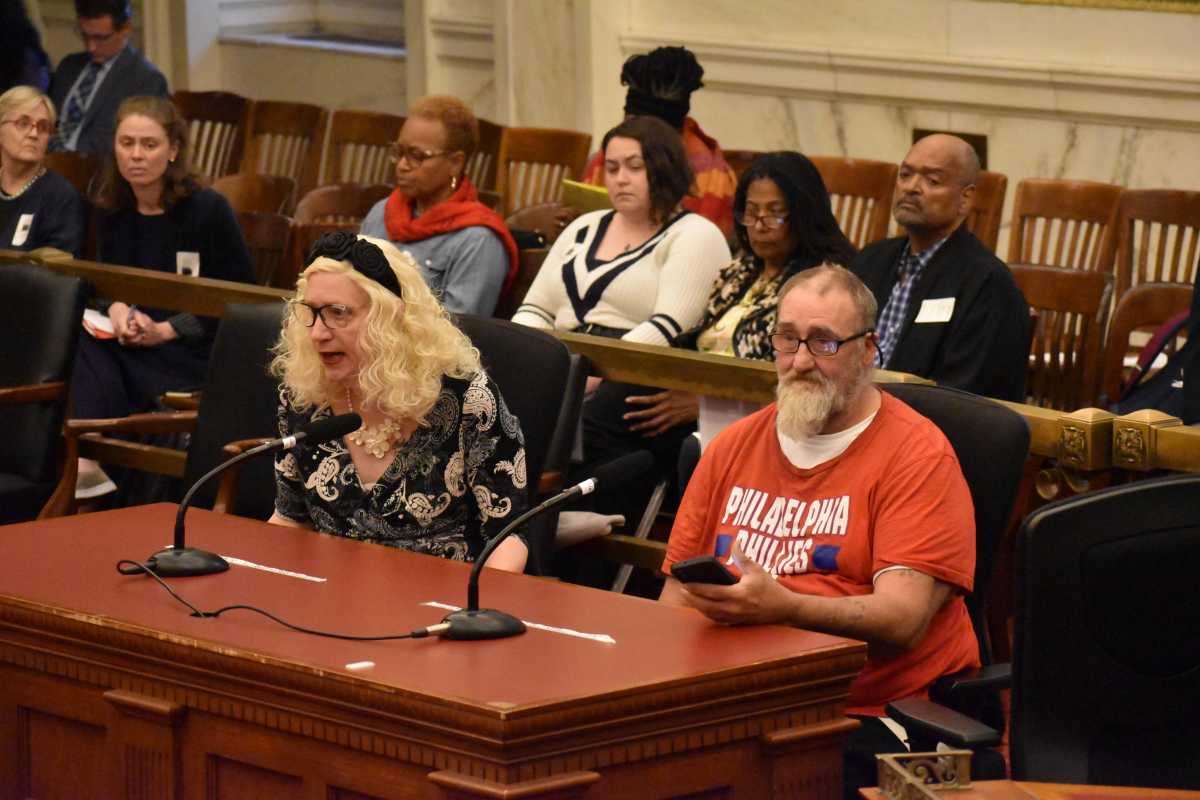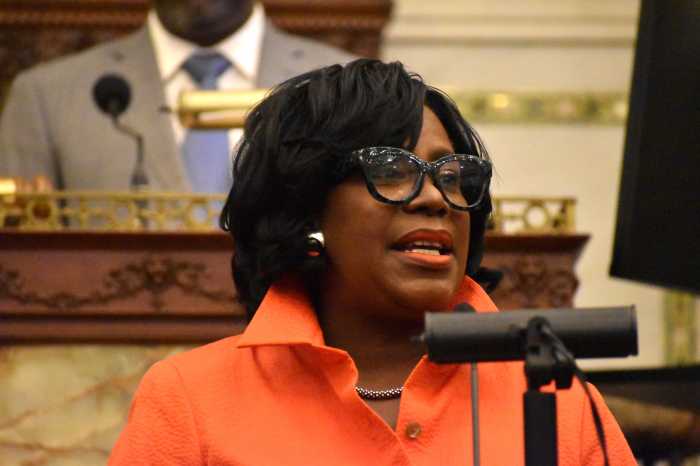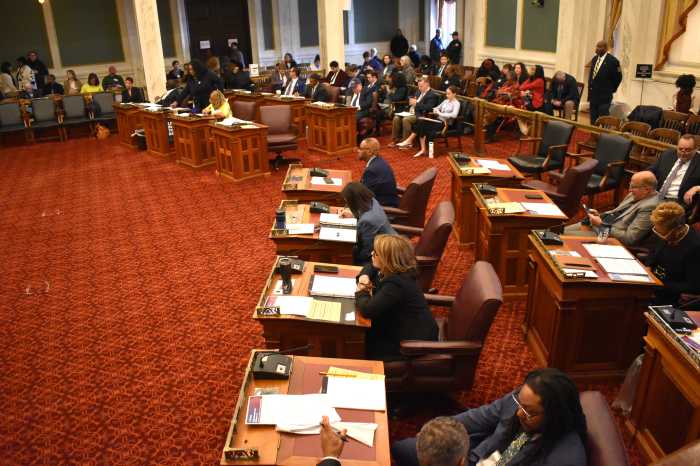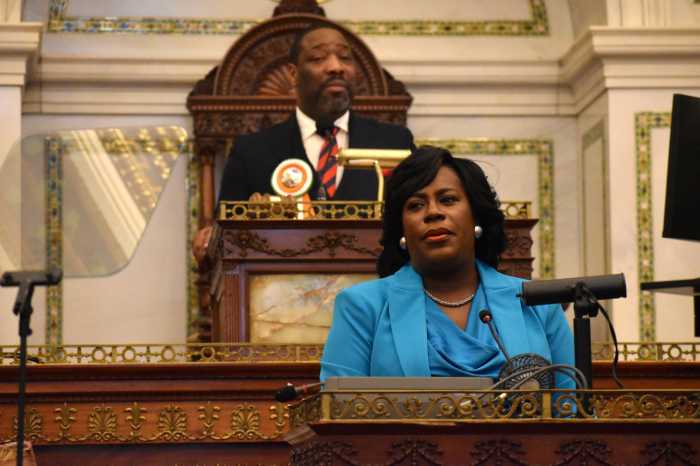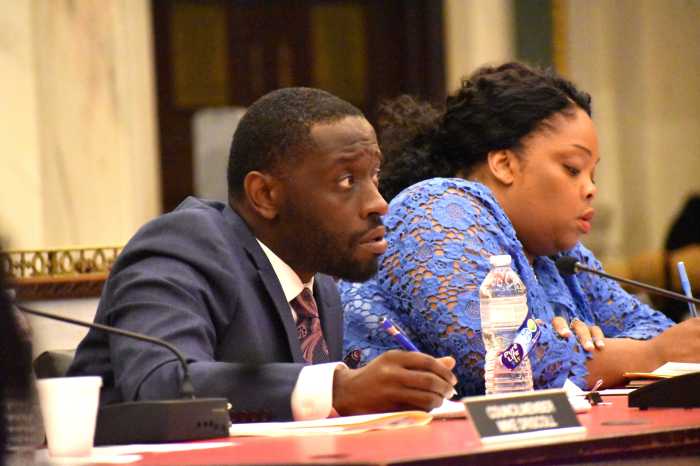A City Council committee on Monday gave preliminary approval to legislation that could create a new department overseeing Philadelphia’s beleaguered Office of Homeless Services.
Majority Leader Katherine Gilmore Richardson, the primary sponsor of the package, said she has heard reports that some homeless individuals have faced retaliation inside shelters for advocating for the bill.
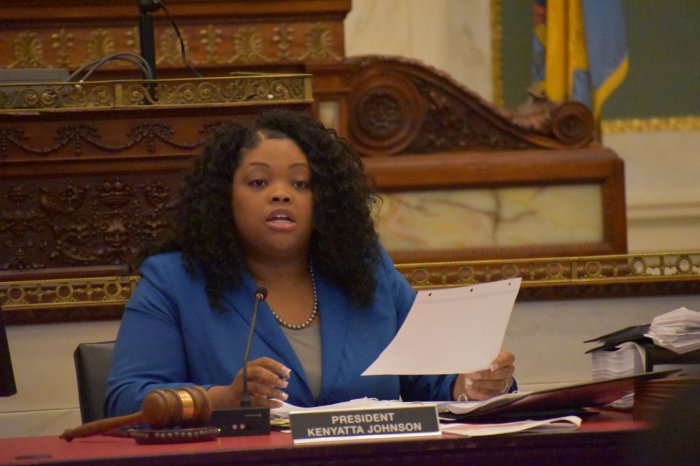
Several unsheltered people – who have appeared at multiple hearings and been in communication with Gilmore Richardson’s office – said they have been treated differently since they began showing up at City Hall.
“I feel very retaliated against ever since the day we started,” said Howard Griffith, an advocate who is homeless. Another person who testified said shelter employees have been asking him why he has been going to Room 400, Council’s chambers.
Gilmore Richardson and her staff have been focused on OHS’s operations for more than a year, and she helped bring to light the department’s fiscal issues. OHS racked up nearly $15 million in debt by overspending its budget in recent years, and several investigations are ongoing into the office’s finances.
“I’m not placing spies in shelters in the city of Philadelphia,” Gilmore Richardson said Monday, responding to what she described as an allegation that has been floating around.
Nearly a dozen advocates – most either currently or very recently homeless – spoke about poor conditions inside shelters operated or funded by the city and expressed support for the oversight legislation.
“I can tell you honestly, for me, it felt like a prison,” said Timothea Reimel, a formerly unsheltered person who recently transitioned to stable housing. “I want to see accountability. I want to see somewhere where people can turn to and get results.”
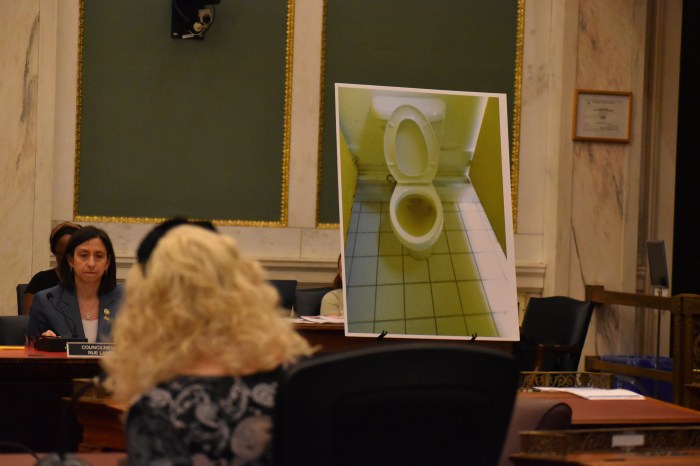
Council members were taken aback when Tycheonah White, who is living in emergency housing, said they are required to hand over their SNAP benefits, also known as food stamps, for meals.
Max Ray-Riek, an organizer with ACT UP, told lawmakers that the practice is common in drug and alcohol recovery houses, though some providers, he added, may be violating state law.
White also said they were turned away from a city intake center after revealing that they are transgender, and Norman Bok, a homeless gay man, said he has experienced homophobia in the shelter system.
“When they didn’t think I could hear, they would talk to each other and say ‘he’s a fagg*t,’” Bok testified. “That was how they saw me.”
Many with experience living in the shelters reported spoiled food; unclean bathrooms and other areas; excessive security and harassment; and poor building conditions. Some said social workers and case managers did not provide much help in getting them into permanent housing.
“That’s why I choose to be on the street because the shelter system is not…” Leland McMoore said, before trailing off. He has been homeless since November.
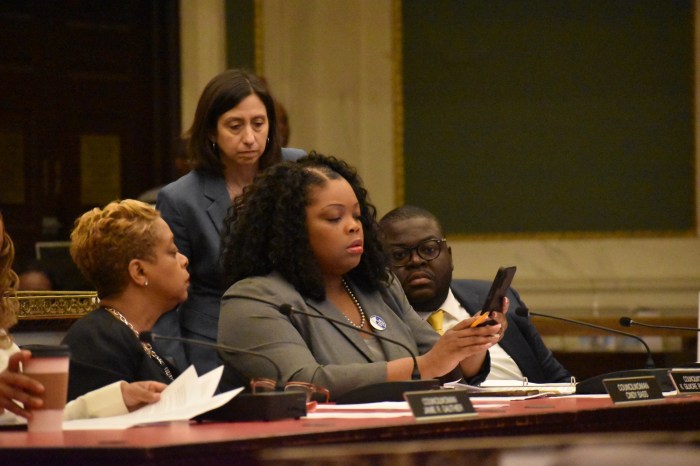
The legislation is for a change to the City Charter and would create a ballot question asking voters whether the city should hire an ombudsperson to oversee OHS and establish a corresponding office. The mayor would appoint the ombudsperson, with the nomination subject to Council approval.
The office would be empowered to conduct investigations, issue subpoenas, evaluate grievances and act as an advocate for the homeless population, with a particular focus on the shelter system, according to the legislation.
In January, when Gilmore Richardson introduced the resolution, the question was supposed to be placed on November’s general election ballot; however, the proposal was amended Monday to push it back to the May 2025 primary.
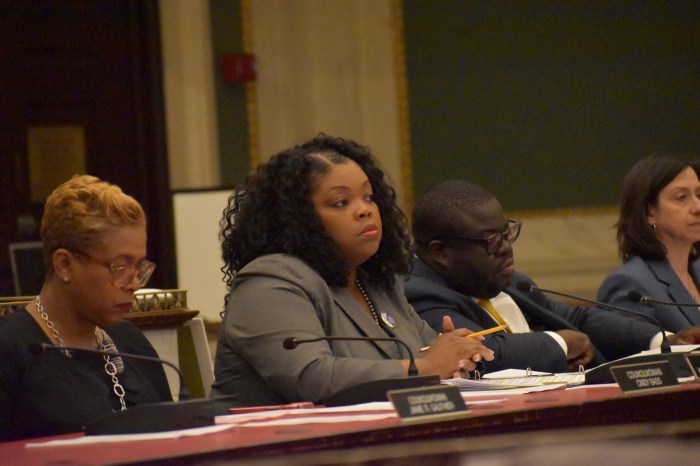
Council’s Committee on Law and Government advanced the legislation without objection, and it could be considered for a final vote as soon as May 30.
Human Resources Director Mike Zaccagni, who testified for Mayor Cherelle Parker’s administration, said the executive branch wants lawmakers to reconsider the structure of the position.
“A Charter change would restrict the ability to make adjustments in the future,” he said in written testimony. “Therefore, we recommend that any decisions regarding this position be made outside of that process.”
Councilmember Cindy Bass, who characterized the testimony from homeless advocates as “very, very disturbing,” lamented OHS’s absence at the hearing and asked the administration to act with a “sense of urgency” to address problems with the shelters.



